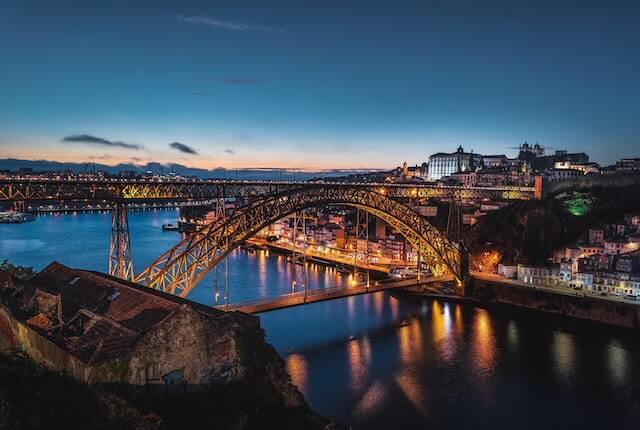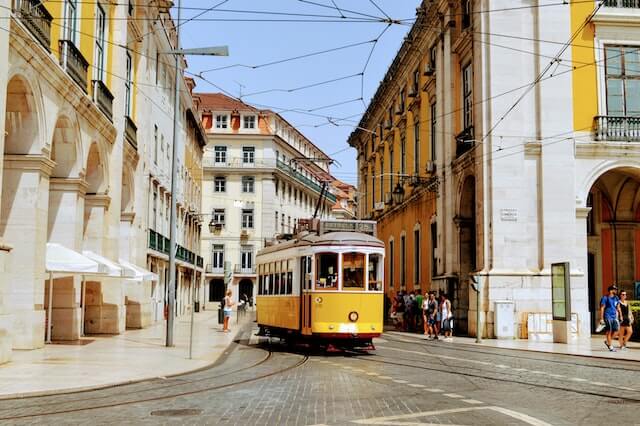Portugal is a beautiful and vibrant country with a rich culture, and it’s no wonder that more and more people are visiting each year. But, like with any country, Portugal has do’s and don’ts that everyone should be aware of.
In this blog article, we’ll dive into what makes Portugal unique and provide some key tips on how to best experience the culture, like understanding the language and proper social etiquette.
So, if you want to learn more about Portugal’s do’s and don’ts and preparation tips, keep reading!
Introduction to Portugal and Its Culture
Portugal, a small nation brimming with cultural and historical richness, often flies under the radar. Perhaps it’s due to its modesty that its unique combination of characteristics has gone largely unnoticed – until now.
With stunning landscapes composed of sandy beaches and sunny coastlines alongside captivating cities possessing centuries-old heritage, Portugal has something to offer for everyone. Through the passing of time, it has inherited a wealth of stunning architectural delights and awe-inspiring artwork; this fusion is impossible to experience anywhere else on Earth.
Delve further into Portuguese culture, and you will find enchanting customs and traditions ranging from Fado – the melancholic folk music which draws many each year – to enticing gastronomy spiced with surreal flavors.
Moreover, Portugal’s welcoming people are valued for both their hospitality as much for their enthusiasm for life, which can be felt throughout every corner of the country; as such, it makes an ideal destination for those looking to bask in European culture amidst a relaxed atmosphere where time felt slower than ever before.

What Are the “Do’s” When Visiting Portugal?
Visiting Portugal affords travelers the perfect opportunity to explore and discover its many wonders.
To make the most of their trip, visitors should take note of some ‘do’s’ when navigating Portuguese culture:
- Embrace the local customs;
- Sample traditional dishes;
- Take part in vibrant festivals and cultural events;
- Find time to relax in picturesque scenery;
- and learn about Portuguese history.
Portuguese customs, such as greeting with a handshake and observing silence during religious occasions, should be respected. Tourists can soak up the country’s culinary culture by engaging with traditional gastronomic delights like:
- Grilled sardines,
- Pastel de nata (custard tarts),
- Bacalhau (codfish),
- or caldo verde (green soup).
Portugueses have vibrant festivals such as Queima Das Fitas, which celebrates students graduating from universities, and endless opportunities for outdoor exploration like:
- Beaches,
- Stunning landscapes,
- and wildflower hikes that are sure to give visitors a restful respite out in nature.
Lastly, tourists should research Portugal’s extensive history. From its Roman heritage to being one of Europe’s oldest nations. Which will certainly broaden patrons’ perspectives on the country’s wealth of cultural experiences.
What Are the “Don’ts” When Visiting Portugal?
Portugal is a beautiful and culturally rich destination and should be visited with respect. There are, however, certain things that must not be done when visiting this country.
To ensure the best experience for locals and visitors alike, it’s important to bear in mind the following don’ts:
- Refrain from consuming alcohol in public or on the streets;
- Do not drop litter;
- Avoid taking photographs of military installations or people without their express permission;
- Abide by existing regulations concerning national monuments, parks, and access points;
- Do not stray into restricted areas;
- It’s considered rude to be late for a meeting or dinner engagement;
- When dining out, it’s best not to order more food than you can eat – leaving food on your plate is considered wasteful.
- Use appropriate language when conversing with locals. Portuguese remains the official language of Portugal, although English is widely spoken in cities.
Adhering to these simple don’ts will ensure that your experience of Portugal will stay within memory for all the right reasons.
Related articles: What are the best places to live in Lisbon?
Examples of Social Etiquette in Portugal
Portugal is home to a variety of diverse cultures, each offering its own unique set of social etiquette.
Generally speaking, when engaging with the locals, one should remain mindful of their behavior, as the Portuguese prefer polite interactions which show respect for other people and their cultural norms.
Gestures such as a smile or handshake are common introductions while maintaining eye contact and speaking at low volumes are important for conveying respect. Furthermore, it’s considered polite to let others speak first when entering into conversations.
Moreover, gift-giving is an important part of Portuguese social etiquette. Small honors, such as bringing one’s host flowers or sweets at initial meetings, can be greatly appreciated.
When dining out with friends and family, it’s important to wait for the host to taste their food before beginning your meal (as they represent an important tier in the hierarchical structure) and always thank everyone once you have finished eating.
In addition to these courtesies, though, there are still numerous nuances worth noting if one hopes to maximize cultural understanding – sartorial etiquette may be especially apparent in more formal settings (suit jackets being expected even during summer months).
Related article: The best places to visit in Lisbon at night
Tips on Preparing for a Trip to Portugal
Portugal is a great place to visit, but there are a few things travelers should keep in mind before embarking on their trip.
From the language spoken to the currency used and other important details, preparation is paramount.
Here are some tips on what to know before visiting Portugal:
Language:
Portuguese is the official language of Portugal. Though English is widely spoken in major tourist areas, particularly in Lisbon, it’s still important to brush up on your Portuguese phrasebook or take a language course so you can understand instructions and get by during your stay.
Currency:
The euro (EUR) is the national currency of Portugal. Travelers should ensure they exchange their home currency for euros at an appropriate bank or money exchange station before arriving in order to make transactions easier during their stay.
Visas and Passports:
Depending on where you’re from and how long you intend to stay, you may need a visa or passport service visa— consulting with local consulates as soon as possible will help ensure that all necessary paperwork has been processed prior to traveling.
Related article: The best romantic restaurants in Algarve
Conclusion
Visiting Portugal can be a rich cultural experience if you know what to expect.
By understanding the do’s and don’ts of Portuguese culture, as well as some essential tips for preparing for your trip, you’ll have an enjoyable time and make memories that will last a lifetime!

